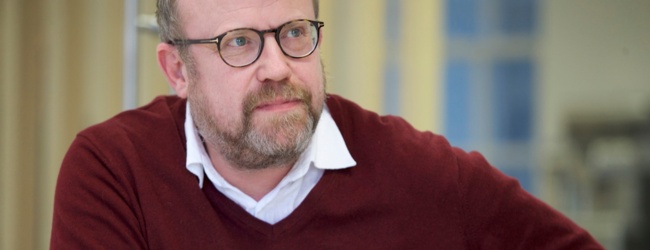Current job
Professor of Health Informatics, University of Manchester
Key quote
“Knowledge advances by challenging convention, so an unconventional career structure need not be a disadvantage.”
Start of career
1993
Career in brief
As an undergraduate I studied Physics, because I enjoyed it and since I didn’t have a career goal, I knew it would keep my options open. After that, I studied for a MSc in Cognitive Science, to satisfy my curiosity about the brain and computation. I decided that rather than go on to a PhD, I would enter the real world and earn a living.
I worked for a number of multinational companies designing systems and developing software. I developed skills I would never have acquired in academia and was fortunate to travel the world.
After doing this for ten years, I felt I needed something more out of my career that the corporate world could provide. When personal circumstances meant I needed to relocate back to the North West of England, I took the chance to change and I rejoined the world of academia as a Research Associate in the School of Computer Science at the University of Manchester, working on grid computing. The skills I had developed in industry were transferable to this role.
Eleven years later I completed a PhD by published work in health informatics and I was made a professor in 2016. The majority of my academic activity, research grants and published outputs, has been concentrated into the last three years.
My career history is very different to that of a conventional academic; I completed my PhD long after I had established myself as an independent researcher with significant grant income and the leader of a research group.
How I spend my days
I consider myself very fortunate that I am able to spend a lot of my time thinking about new research ideas. Helping to develop the skills and nurturing the talent of a new generation of researchers is immensely rewarding.
Career highlights
Being made a professor is a highlight, as was creating a social enterprise to put our research into practice. Affigo CIC was spun out of the University of Manchester in 2015 to commercialise the research we did into smartphone apps for diagnostic monitoring of schizophrenia.
Biggest challenges
Giving up an established career in industry and having to start again in academia. I had no idea where I would end up when I made the change.
What I wish I’d known
I think I have been fortunate to be the right person in the right place at the right time, as I have found the transition relatively painless, but I was naive about how academia works and what it values. If I was to do it again I would try to get a better understanding of how academia works and be more strategic in planning a career.
My most valuable skills
The skills I developed in industry, such as project management, product design and development, are less prevalent in academia, and I have been able to bring new skills into research.
What inspires me
I have been fortunate to work alongside Professor Iain Buchan and Professor Shôn Lewis, both of whom have helped and guided me along the way.
Words of wisdom
I have to work much harder in academia than I did in industry to succeed, but it’s worth it as I am doing something I genuinely love. My advice for anyone considering entering academia from industry is to not undervalue the skills and experience developed in industry. These skills are unusual in academia and can help you succeed.
Next steps
I am always looking out for the next research opportunity or new groups to collaborate with. I have found interesting research emerges when we work across disciplines.

